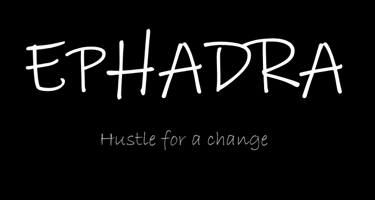The War Inside: Silent Mental Health Crises in Conflict Zones
In war, we count bodies and borders — but overlook the quietest casualties: the minds that survive. This powerful blog uncovers the silent mental health crises in conflict zones, sharing raw, untold stories of people battling an invisible war within. Through personal reflections and global voices, it invites us to listen, remember, and echo back what the world forgets. Because silence shouldn’t be a burial ground for truth.
STORYTELLING
J Nethinsairajan
7/13/20253 min read


The War Inside: Silent Mental Health Crises in Conflict Zones
By Nethinsairajan
I. The Gunfire We Can’t Hear
When we speak of war, our minds leap to smoke-choked skies, crumbling cities, screaming sirens.
We count the dead.
We map the borders.
We debate politics.
But rarely — almost never — do we stop to ask:
What about the war inside the people who survive?
Behind every broken wall is someone with a story that never made the headlines.
Someone whose silence has grown heavier than the bombs.
II. Echoes That Never Made It Out
Let me take you to Gaza.
A young woman there wakes up every morning to the hum of drones. She hasn’t heard birds chirp in weeks. Her journal is filled with entries like:
"If I die today, I hope my soul finally sleeps."
Now to Myanmar.
A teacher watches her school burn down. Her students scatter like dust in the wind. For weeks, she teaches imaginary classes in her mind — because that’s the only place the violence hasn’t reached.
Then Sudan.
A man, once a musician, now walks with hollow eyes. His guitar strings have long snapped, but his fingers still twitch like they’re trying to remember what peace sounded like.
These are not just stories that we hear as a History... These are the stories where our heart race in pride after hearing them.
III. The Invisible Wounds of War
These people aren’t just fleeing bullets.
They’re fighting invisible enemies:
Nightmares they can’t outrun
Memories that feel like live grenades
The guilt of surviving when loved ones didn’t
Numbness, so thick it turns their hearts to stone
These are psychological casualties, and they exist in every war.
But there are no ceremonies for them.
No medals.
No memorials.
Just a long, haunting silence.
IV. What They Carry
Many in conflict zones are carrying silent burdens:
Mothers who pretend they're strong so their kids don’t collapse.
Children who draw tanks with smiling faces because they don’t know how else to cope.
Men who bottle up trauma because in their culture, emotions are weakness.
Refugees who smile at borders but cry into their hands at night.
And the world? It scrolls past.
V. The Struggle to Heal
In a corner of war-torn Ukraine, a therapist holds free sessions in a ruined library.
In Afghanistan, artists paint murals of peace on broken walls — it’s the only way they know how to scream.
In Palestine, a mother teaches her daughter how to write poetry — not to publish, but to breathe.
Healing here is not neat.
It’s raw.
Unfiltered.
Brave.
VI. Why This Story Is Yours, Too
You may not live in a war zone.
But you know what it’s like to hide pain.
To battle voices no one else can hear.
To feel like the world is too loud for your silence.
That’s the thread connecting us all.
Their war may be different, but their humanity is the same.
When we listen to their stories, we don't just bear witness — we honor them.
And maybe, just maybe, we begin to heal our own hidden cracks too.
VII. Echoing Forward: What Can We Do?
Listen deeply, without turning away.
Share their stories — amplify them, don’t mute them.
Support mental health organizations working in conflict zones.
Speak up when silence becomes complicity
At EPHADRA, we believe that storytelling is a form of protest, a form of healing, and most of all, a form of remembering.
Because the world doesn’t need more noise.
It needs echoes that go beyond the war.
Conclusion: Because Silence Shouldn’t Be a Burial Ground
We often think of war as something that ends with ceasefires, treaties, or troop withdrawals.
But for millions, it never ends.
It lingers — in cracked voices, restless dreams, and the quiet collapse behind brave eyes.
The real war begins after the dust settles,
when the world moves on,
but the people can't.
These are not just stories — they’re truths waiting to be heard.
Because when someone dares to speak from their pain, they’re not just telling you what happened to them…
They’re trusting you to carry it.
And we — the listeners, the readers, the witnesses — have a choice.
To scroll past, or to stand still.
To tune out, or to turn toward.
To echo back.
At EPHADRA, we choose to listen.
We choose to remember.
We choose to be amplifiers of the unheard.
Because silence should never be a burial ground for truth.
It should be a canvas, where stories once silenced are finally painted in full color.
